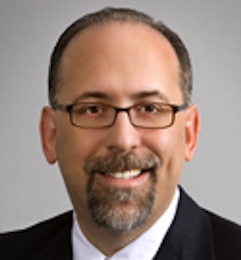LAWYER LIMELIGHT: DAVID S. SIEGEL
By Lawdragon News | October 8, 2014 | Lawyer Limelights - Ajamie, Lawyer Limelights
Senior Counsel David S. Siegel of Ajamie discusses career highlights and current work on several large litigation matters.

Name: David S. Siegel
Firm: Ajamie LLP
Position: Senior Counsel
Practice Areas: Business/Individual Commercial Disputes, Product Liability, Mass Tort Actions, Consumer Class Actions, Securities Fraud, and Bankruptcy Litigation
Location: Houston
Law School: J.D., University of Houston, 1989
Undergraduate: B.A., University of Texas, 1985; Plan II Honors Program
Quotable, on advice to current law students: "My advice to law students would be to think long and hard about the sort of practice they want to pursue, and then to take as many classes in that area as possible."
Lawdragon: Let’s start out with a general overview of your practice. How do you describe to recruits or family what it is you do? What is professionally satisfying?
David S. Siegel: My practice generally consists of representing parties in commercial disputes. What is professionally satisfying about my practice is obtaining relief for individuals or companies who have either been so damaged that they needed to resort to litigation, or, on the other hand, defending a client against a groundless suit brought against it.
LD: What cases are keeping you busy these days?
DS: I am currently working on several large litigation matters. One involves claims of tortious interference in the music concert industry. My client contends that it was prevented from performing a contract to produce various concerts by the unlawful interference of a large player in the concert industry which did not welcome the competitive challenge posed by my client. This case is currently in the discovery phase.
Another large matter concerns claims by my physician clients that they are not being fairly compensated by various health insurers for procedures performed on behalf of patients insured by the insurance companies. This matter is currently in the pre-suit demand stage.
Recently resolved cases include: a) another case on behalf of a health care providers, resolved to the satisfaction of my client; b)an adversary matter in a large corporate bankruptcy, resolved to the satisfaction of my creditor client; c) litigation arising out of a banking matter involving forged checks, resolved to the satisfaction (no liability)of my clients, one of the banks in the check presentment chain; d)satisfactory resolution of a wrongful death premises liability case in which a privately owned correctional facility, through inadequate security practices, allowed convicts to escape who then murdered my clients’ family members; satisfactory resolution of securities fraud claims brought against offeror of private placement securities.
LD: Is this the type of practice you imagined yourself practicing while in law school?
DS: My practice today is similar to what I imagined it would be in law school, with inevitable twists and turns through the years. I anticipated being a litigator because it fit with my interest in oral and written advocacy. While in law school I am not sure I knew whether I would become primarily a commercial litigator, as opposed to say a personal injury litigator. I have done both in my career, and as a general rule I have, and continue to, represent more plaintiffs than defendants. My clients have been wronged to the point that they have sought out legal representation to attempt to be made whole or to get justice. It is satisfying to be able to help them do so.
LD: Do you have advice now for current law school students?
DS: My advice to law students would be to think long and hard about the sort of practice they want to pursue, and then to take as many classes in that area as possible. For example, those interested in litigation should take the typical course offerings pertinent to litigation (procedure, evidence, etc.) but they should also seek out as many hands-on practical clinic type courses as they can as well. Generally speaking, the traditional classroom courses don’t give a full picture of what day to day life as a litigator is like, so anything that gets out of the traditional classroom and into a real-world, law firm or courtroom setting, would be valuable.
LD: Is there a case in your career that stands out as particularly memorable?
DS: Two cases in my career stand out. The first, a mass tort case on behalf of thousands of third-world agricultural workers who were poisoned through exposure to a pesticide which had been banned by the U.S. government and then dumped overseas and used by American corporations in their overseas operations. The second was a wrongful death case, alluded to above, brought on behalf of surviving family members against a privately run correctional facility which permitted, through lax security, dangerous convicts to escape. Once they did, they murdered my clients’ parents.
LD: What do you do for fun when you’re outside the office?
DS: I am interested in playing the piano, hiking, reading, travel and amateur radio.
LD: If you weren’t a lawyer, what would you be doing now professionally?
DS: If I were not a lawyer I would probably be teaching at the college level. The only other career option I seriously considered was academia.
LD: Do you have a favorite book or movie about the law or justice system?
DS: My favorite movie about the law is The Verdict.

